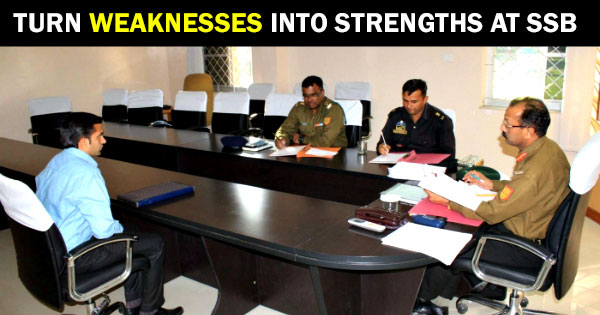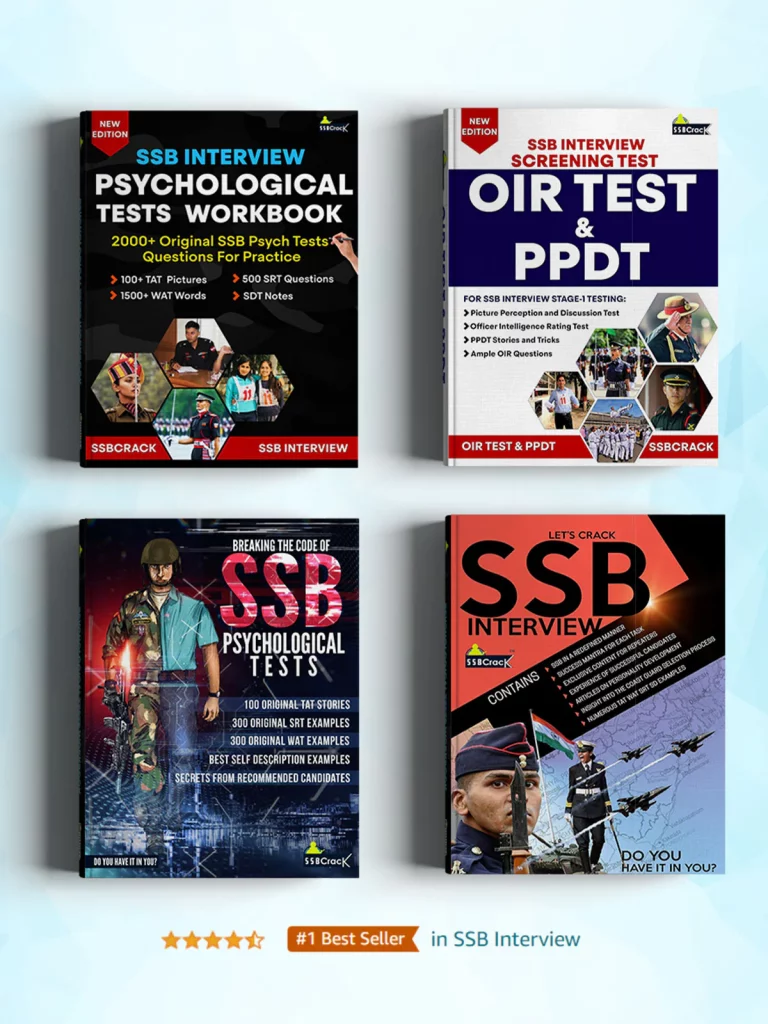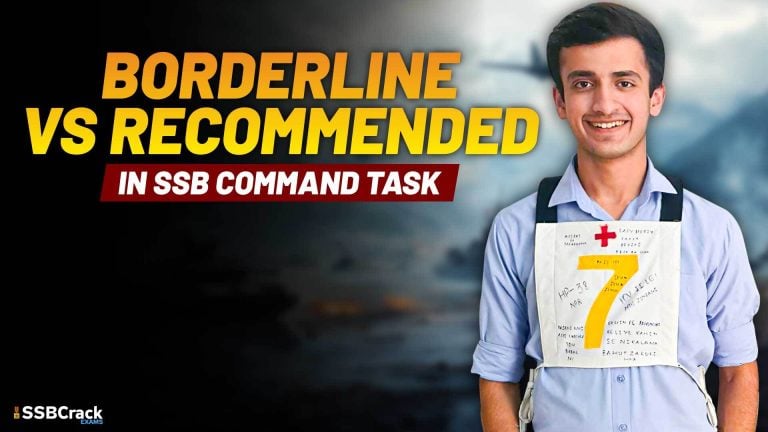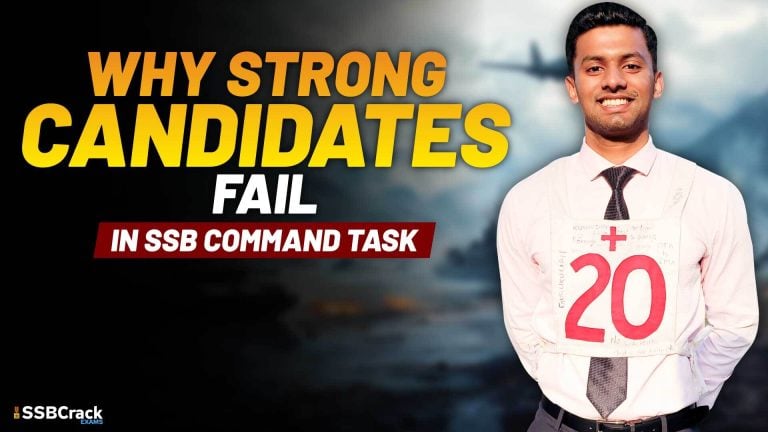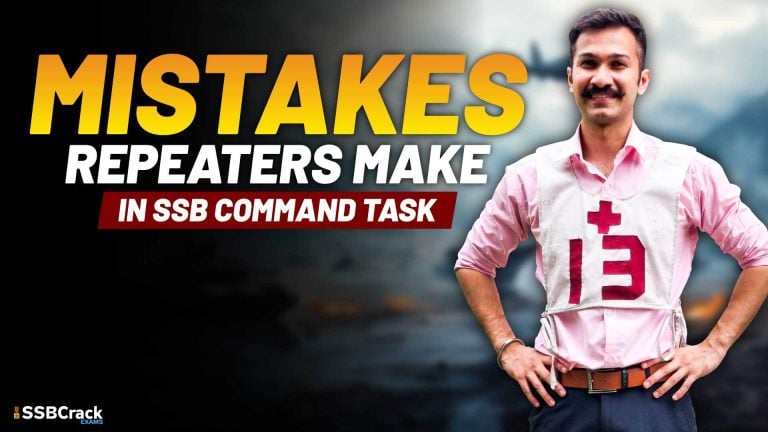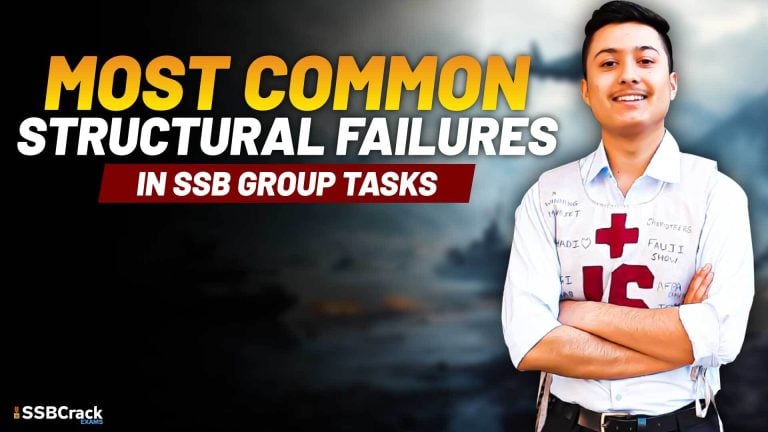While your main focus in the SSB interview is to impress the interviewer with your stellar performance, there’s always that one question that can put you in trouble: “What are your weaknesses?” It is not asked to put yourself down or to admit to personal failings, but the question’s negativity doesn’t require a straightforward negative response. Instead, a creative approach to admitting human weaknesses can present you as an honest and forthright candidate. Every person is made up of both positive and negative qualities.
In preparing your response, it’s important to understand why an interviewer asks this question. He wants to see if you recognize and are willing to admit your faults. A person who refuses to admit he/she has any areas of personal or professional life to improve upon, isn’t a candidate who is willing to take direction or grow. The interviewer wants to see how you handle a tough-to-answer question that forces you to examine areas you know need work. While there’s no universal formula to successfully answer this question, but there are certain tricks that can help you to rock this question like a pro in the SSB Interview.
1. Make a list of your weaknesses
We all have certain shortcomings we simply don’t like, don’t do well, or prefer not to express to others. Make a list of your weaknesses on both personal and professional level and be honest about how you see yourself, or even how others see you, in terms of not-so-good qualities. Some of them can be:
- Tardiness
- Short temper
- Lack of organization
- Perfectionism
- Stubbornness
- Messiness
- Poor time management
- Bossiness
- Self-doubt
- Impatience
- Procrastination
- Disorganized
- Self-critical/sensitive
- Shy/Not adept at public speaking
- Competitive
- Not detail-oriented/too detail-oriented
- Not comfortable taking risks
- Too focused/lack of focus
Now think, how you can make use of your negative qualities in a positive way that can actually benefit you.
2. Avoid cheesy and unprofessional response
By all means, avoid the cheesy and unprofessional response of, “I just work too hard” or, “I demand perfection of myself and everyone around me.” You won’t appear sincere, and chances are good the interviewer has heard these tired lines many times before. If you are asked about strengths and weaknesses at the same time, discuss your weakness first so that you can end on a positive note.
3. Do not try to avoid or refuse answering the question
Some people tend to avoid or choose not to answer this question or say that they can’t think of a single weakness. To an interviewer, this answer means that the candidate has come unprepared and is afraid of saying the wrong thing — or even worse, hiding something. It can establish you as an egoistic, arrogant and a lying individual.
4. Do not try to reveal everything
Trying to be too honest and revealing everything for your own good is troublesome and can make you lose your position if you don’t answer smartly. In the SSB Interview, what an interviewer looks forward in a candidate is a strong personality, leadership quality and being confident. If you do not have these qualities, don’t say that directly. One of the simplest way to make your weakness a strength is to invent a situation and how you overcame your weakness in such a situation. However, don’t become too cinematic or overtly imaginary while countering it.
How to make Negative Qualities your Positive Attributes
- Try to explain how you have improvised or is planning to improvise your negative quality through productive exercises like yoga, meditation, social work, teamwork, etc.
- If time management is an issue for you, you can say – “I do struggle with time management on occasion, but I combat it by faithfully using electronic alarms, a detailed calendar and by always building in an extra 30 minutes of ‘makeup’ time at the end of each day.”
- If being bossy is your weakness, you can say – “When I work in a team environment, I tend to want to jump in and take charge, but I am learning that a collective approach is almost always the most successful route to take. If it’s a project that’s in my personal area of expertise, I’ll offer that up at the beginning, and trust that if I’m asked to lead the effort, it will be because the group as a whole thinks I’m best suited for the role.”
- If you are one of those people whose lack of focus is a weakness, there is nothing to be ashamed of. Be frank and do not hesitate to tell your interviewer about the same. After that, you can talk about the steps you are taking to improve the same. This would include things like better sleep habits, meditation and yoga that you have taken up to tackle your shortcoming.
- If you are impatient and have previously done things without giving them much thought, you can explain how to try learning patience every day through self-control, balancing exercises, meditation, etc. You can also project how you being so active and instantaneous has made you save the day in a particular situation.
There are thus, numerous ways for you to articulate, develop and come up with different responses for this particular question about your weaknesses. Your job is to showcase your strengths through weaknesses in the SSB Interview. But overall, try to be truthful and be yourself. Relax, be confident and believe in yourself.
Jai Hind!
Also Read:
- NDA & CDS 1 2026 Exam GK – Solar System
- France to Expand Nuclear Arsenal and Deploy Forces to Allied Countries
- Defence Current Affairs 03 March 2026
- Melania Trump Chairs UN Security Council Meeting Amid Ongoing US-Israeli War Against Iran
- Lieutenant General Prasanna Kishore Mishra Reviews Security Situation in Kishtwar
